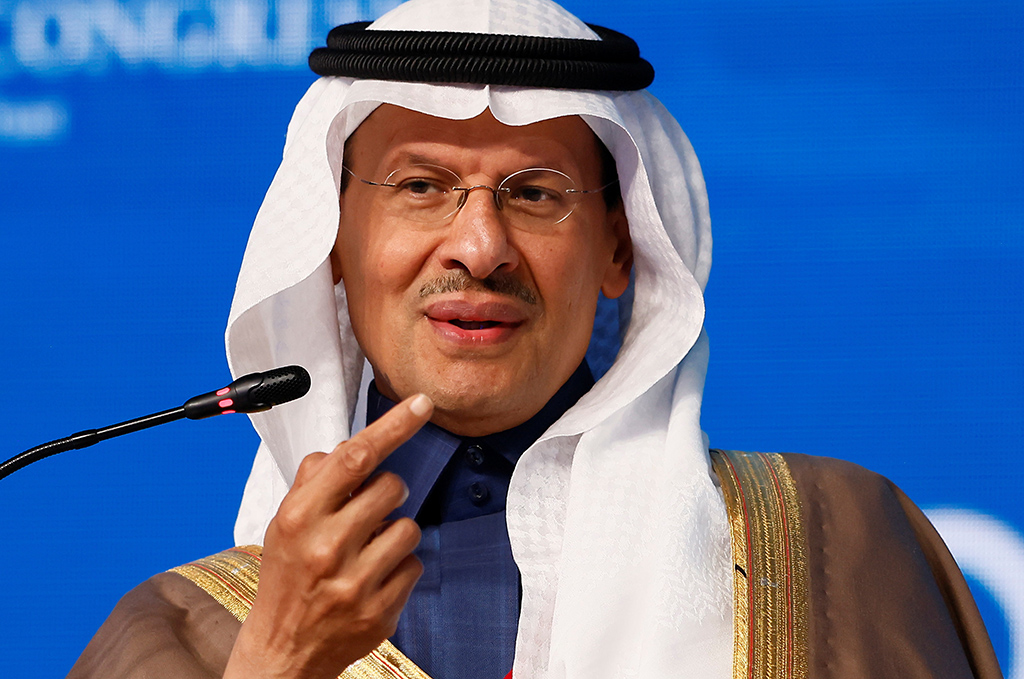RIYADH: OPEC leader Saudi Arabia's energy minister said that the oil cartel and its allies have the means to deal with market challenges-including by "cutting production". "OPEC+ has the commitment, the flexibility, and the means within the existing mechanisms... to deal with such challenges including cutting production at any time," Prince Abdulaziz bin Salman said in an interview with Bloomberg, according to Saudi state news agency SPA.
The Saudi-led Organization of the Petroleum Exporting Countries (OPEC) consists of 13 members. OPEC and 10 allies led by Russia-a group known as OPEC+ -- agreed last month to raise production by 100,000 bpd in September following Western calls for more output after Russia's war in Ukraine and a post-pandemic surge in demand sent crude prices soaring. They had agreed to increases of almost 650,000 bpd in July and August, but the cartel has struggled to meet its quotas.
Oil prices have dropped from a peak in June due to growing supplies as well as concerns over the deteriorating economic outlook. "Volatility and thin liquidity send erroneous signals to markets at times when clarity is most needed," said Prince Abdulaziz. He warned that a "vicious circle" was being "amplified by the flow of unsubstantiated stories about demand destruction, recurring news about the return of large volumes of supply, and ambiguity and uncertainty about the potential impacts of price caps, embargoes, and sanctions."
OPEC raised production by 162,000 barrels in July to a total of 28.8 million bpd, with most of the output coming from Saudi Arabia, the United Arab Emirates and Kuwait, according to its monthly report. "In OPEC+ we have experienced a much more challenging environment in the past and we have emerged stronger and more cohesive than ever," said Prince Abdulaziz.
"Soon we will start working on a new agreement beyond 2022", he added. Brent was trading 0.7 per cent higher at $97.16 a barrel at 8.08am UAE time on Tuesday. West Texas Intermediate, the gauge that tracks US crude, was down 0.59 per cent at $90.23 a barrel. "Witnessing this recent harmful volatility disturb the basic functions of the market and undermine the stability of oil markets will only strengthen our resolve," Prince Abdulaziz said.
The "extreme volatility" and the "thin liquidity" prevailing in the oil market have also adversely affected the smooth operations of the industry and led to increased risks and uncertainty, he said. A thin liquidity refers to a market characterized by a smaller number of buyers and sellers but a high price volatility. These factors have undermined the market's "essential function of efficient price discovery and have made the cost of hedging and managing risks for physical users prohibitive," he said. It has also negatively affected commodities, creating new types of risks and insecurities.
"This vicious circle is amplified by the flow of unsubstantiated stories about demand destruction ... return of large volumes of supply ... and uncertainty about the potential impacts of price caps, embargoes and sanctions," Prince Abdulaziz said.
Volatility is detrimental because "without sufficient liquidity, markets can't reflect the realities of the physical fundamentals in a meaningful way and can give a false sense of security at times when spare capacity is severely limited and the risk of severe disruptions remains high," he added. - Agencies











